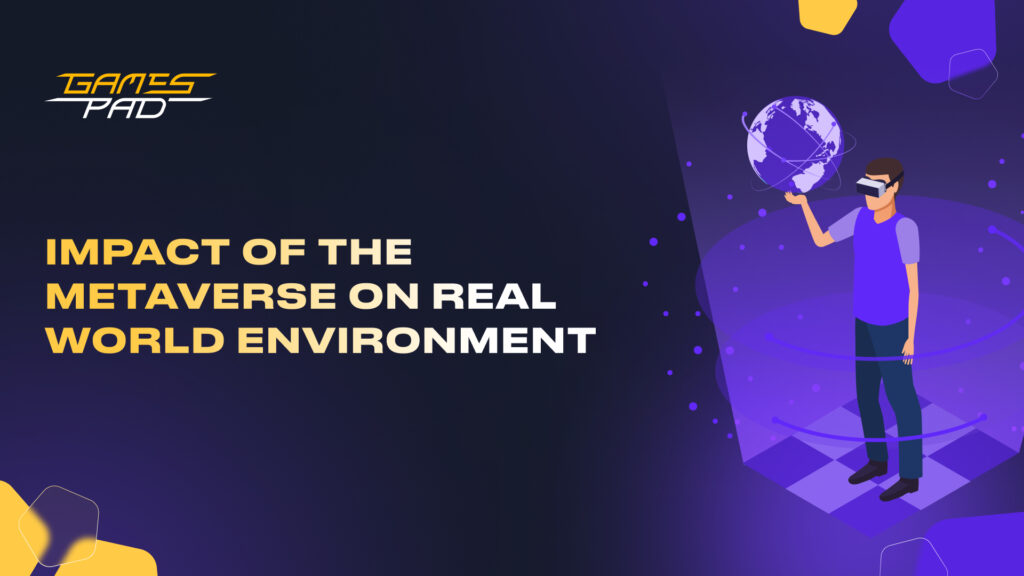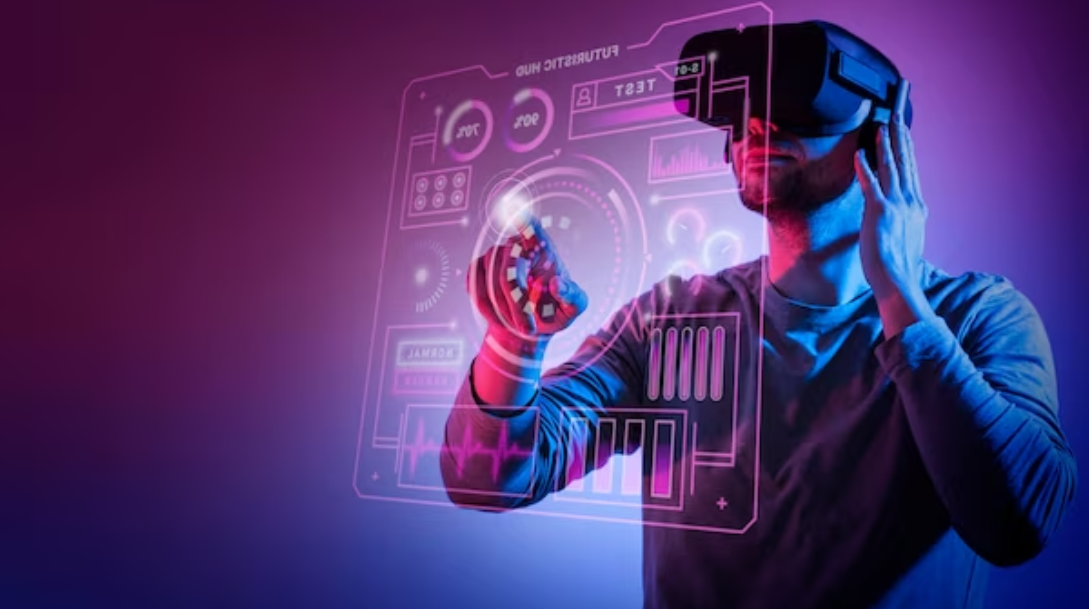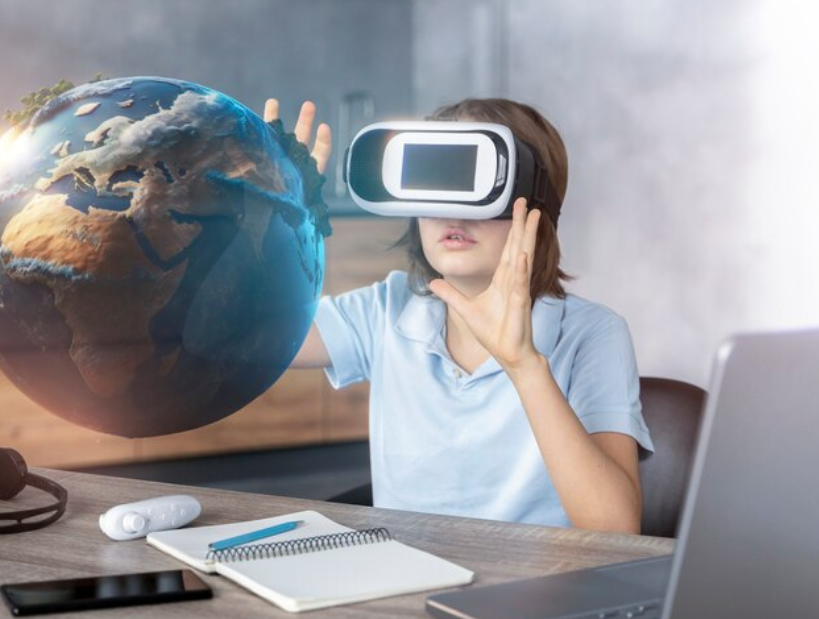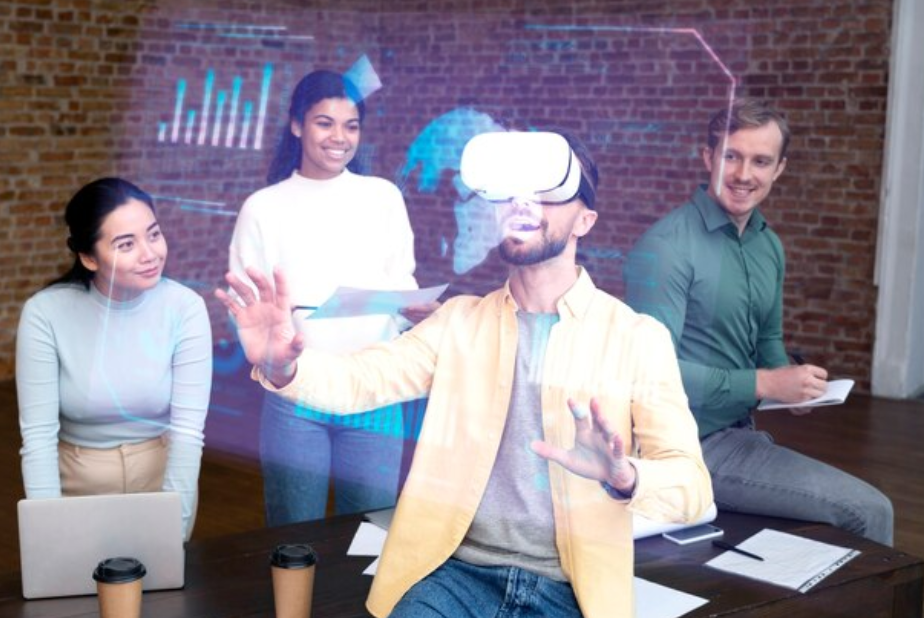
The concept of the metaverse, a collective virtual shared space that integrates aspects of physical and a mixture of virtual and augmented reality, has rapidly gained prominence in recent years. Understanding the implications of the metaverse in various domains is crucial for navigating the evolving landscape of technology and society.

The advent of the metaverse has brought about a paradigm shift in the way humans interact and communicate, transcending traditional boundaries and introducing novel dimensions to social dynamics in civil society. Understanding these changes is crucial for grasping the transformative impact that virtual and augmented reality technology has on our interconnected world.
One of the fundamental ways the metaverse influences social interaction is by breaking down physical barriers. Geographical constraints that limit face-to-face communication are mitigated, allowing people from different corners of the globe to connect seamlessly in shared virtual spaces powered by mixed-reality technology. This borderless interaction promotes a global community where individuals can engage without the limitations of distance.
The metaverse technology empowers immersive experiences in communication that go beyond text-based or two-dimensional interactions. Avatars and virtual environments provide users with a more immersive and expressive way to communicate, enabling a richer form of interaction that includes gestures, facial expressions, and body language. This heightened level of expression fosters a sense of presence and connection thus creating new opportunities to communicate in a digital world.
The impact of the metaverse technology on social structures is very deep. Virtual worlds create new social hierarchies and structures that may differ from those in real life. Online communities, guilds, and interest-based groups form organically, redefining how individuals affiliate and identify themselves. The fluid nature of social structures in the Metaverse challenges traditional notions of societal organization.
Metaverse technology powered by mixed reality allows individuals to craft digital identities that may differ from their physical personas. Avatars and virtual representations become extensions of one’s self, offering a space for self-expression and exploration. This phenomenon not only influences how individuals perceive themselves but also shapes how they are perceived by others within digital spaces.

Virtual communities within different metaverse platforms can be highly specialized and focused on shared interests. This enables like-minded individuals to come together, fostering collaboration and innovation. From business networking to creative collaborations, the metaverse technology provides a platform for users to connect based on shared passions, transcending physical constraints that might hinder such interactions.
While the metaverse introduces opportunities for social connection and entertainment, it also poses challenges to established social structures. Issues such as anonymity, cyberbullying, and the potential for echo chambers raise concerns about the negative impact of virtual interactions on mental health and societal cohesion.
The metaverse facilitates cultural exchange on a global scale. Different cultures converge in shared virtual reality VR and augmented reality applications, leading to a fusion of ideas, traditions, and practices. This interconnectedness contributes to a more diverse and immersive VR landscape, challenging pre-existing notions of cultural boundaries.
As virtual and augmented reality applications become integral to daily life, the metaverse plays a role in shaping and redefining social norms. Concepts of privacy, personal space, and acceptable behavior in the physical world are re-evaluated in innovative ways in the context of digital interactions powered by VR and AR technology. Navigating these evolving norms becomes essential for individuals and societies engaging in the metaverse.

The metaverse holds immense potential for powering the next evolution stage in education. Virtual classrooms, immersive simulations, and interactive learning experiences can enhance traditional teaching methods. Real-world case studies highlight the success and challenges of implementing educational initiatives in virtual environments.
The integration of virtual and augmented reality into education has opened up new possibilities for innovative and immersive learning experiences. As technologies and the internet continue to advance, educators and institutions are leveraging the power of the virtual realm to enhance traditional teaching methods by introducing gaming elements and moving learning to a metaverse world. Here are several case studies that highlight successful educational initiatives in the virtual world.
Second Life in a high school
Second Life is a virtual world platform that has been utilized in higher education to create immersive learning experiences by leveraging augmented reality AR and VR technologies.
The University of Texas at Austin implemented Second Life to enhance its architecture courses. Students were able to virtually explore and create architectural designs, engage in collaborative projects, and even attend virtual lectures and conferences. This initiative not only expanded the students’ understanding of architecture but also provided a metaverse platform for global collaboration among students and professionals.
MinecraftEdu for elementary students
MinecraftEdu is an educational version of the popular game Minecraft, tailored for classroom use.
In a primary school in Stockholm, Sweden, MinecraftEdu was integrated into the curriculum to teach a range of subjects. Students collaborated to build historical structures, re-create ecosystems, and solve math problems within the virtual world. This initiative not only enhanced creativity and problem-solving skills but also increased student engagement and motivation.
VR in medical studies
Virtual Reality (VR) has been increasingly used in medical education for immersive training scenarios.
Osso VR, a medical VR platform, has been employed to train orthopedic surgeons. The platform allows students to practice surgeries in a realistic virtual environment, enhancing their skills and confidence before operating on real patients. This initiative demonstrates how virtual reality can provide a safe and controlled space for hands-on medical training.
Language learning in AltspaceVR
AltspaceVR is a virtual reality platform that facilitates social interactions and events.
Language learning startup Language VR organized virtual language immersion events in AltspaceVR. Participants from around the world gathered in a virtual environment to practice speaking and listening in a new language. This initiative showcased how virtual spaces can break down language barriers and provide an immersive language learning experience.
Roblox education for coding
Roblox, a game development platform, has been embraced for its educational potential in teaching coding and game design.
The nonprofit organization iD Tech implemented Roblox as a tool to teach coding to young learners. Through interactive game design projects, students learned fundamental programming concepts in a fun and engaging way. This initiative demonstrated the effectiveness of gamified learning experiences in teaching complex subjects.
Alchemy VR for learning science
Alchemy VR is a virtual reality content creator focused on educational experiences.
Alchemy VR partnered with various schools to create virtual reality content for science education. Students could take virtual field trips, explore ecosystems, dive into the ocean, or even experience historical events. This initiative showcased the potential of VR in bringing experiential learning to studying science.
These case studies highlight the diverse applications of virtual environments in education, ranging from architecture and language learning to medical training and game design. As technology continues to advance, these initiatives provide valuable insights into the transformative impact of virtual experiences on the future of education.

The metaverse is a burgeoning marketplace with new economic models. Virtual goods, services, and digital real estate have created opportunities for entrepreneurship and investment. Analyzing emerging markets within the metaverse is vital for understanding the economic landscape.
These case studies are just some examples of the diverse metaverse applications in educational sector, ranging from architecture and language learning to medical training and game design with gaming. As technology continues to advance, these initiatives provide valuable insights into the transformative impact of virtual experiences on the future of educational purposes.
The metaverse, a collective virtual shared space that intertwines the digital and physical worlds, is revolutionizing the traditional concepts of running a business and collaborating. This digital frontier is reshaping how individuals and companies operate, introducing novel ways of communication, collaboration, and productivity. Here’s an exploration of how the metaverse is transforming the way we work.
The metaverse is paving the way for businesses that would like to leverage existing technologies such as AR and VR to transform office space and transcend physical limitations. New employees and established staff members can now meet, collaborate, and brainstorm in immersive digital environments, regardless of their physical locations. Virtual reality (VR) and augmented reality (AR) technologies enable a realistic and interactive hands-on experience, fostering a sense of presence that goes beyond traditional video conferencing.
With the metaverse, geographical boundaries become less relevant in the workforce. Companies can tap into a global pool of talent without the constraints of physical office locations by providing access to virtual spaces of businesses from any part of the world where the internet is available.
This opens up opportunities for diverse and inclusive teams, bringing together users with unique perspectives and skill sets, irrespective of their geographical location.
The metaverse enhances the remote work experience by creating a more engaging and interactive environment. Virtual offices can be customized to mimic physical spaces, complete with meeting rooms, collaborative spaces, and recreational areas. This immersive approach helps combat feelings of isolation and promotes a more dynamic and connected remote work experience.
Virtual networking and business events (yes, the metaverse can be used not only for entertainment purposes such as virtual concerts and gaming) in the metaverse redefine the concept of professional gatherings. Conferences, trade shows, and networking events can be hosted in virtual spaces, enabling professionals to connect, network, and share insights without the need for travel. This not only saves time and resources but also promotes a more sustainable approach to business interactions thus making the global economy benefit from the metaverse development.
Augmented reality and artificial intelligence applications in the metaverse enhance the physical workspace by overlaying digital information onto the real world. These technologies can be utilized for hands-free instructions, real-time data visualization, and remote assistance, transforming the way employees interact with their physical surroundings.
As the metaverse becomes an integral part of the work landscape, it is shaping the future of corporate culture. Companies are redefining their values, communication styles, and employee engagement strategies to adapt to this evolving digital ecosystem. The emphasis on flexibility, adaptability, and technology literacy is becoming increasingly crucial for success in the metaverse-driven work environment.
The metaverse is ushering in a new era of work, characterized by enhanced collaboration, global connectivity, and immersive experiences. As businesses and individuals embrace these transformative changes, the metaverse is poised to become a cornerstone of the future work landscape, offering unprecedented opportunities for innovation, efficiency, and connectivity.
Technological advancements, including blockchain, AI, and immersive technologies, play a pivotal role in shaping business opportunities within the metaverse. Understanding how these innovations intersect with virtual environments provides valuable insights into the future of technology-driven industries and gives valuable tools for companies to expand and grow in the long term.
Privacy and data security
Privacy concerns in the metaverse raise questions about data security. Examining the regulatory landscape and best practices is essential for addressing these concerns and safeguarding user information in virtual spaces.
Digital rights and ownership
Intellectual property and digital ownership are critical issues in the metaverse. Exploring legal challenges and potential solutions is imperative for establishing a framework that protects creators and users alike.
Accessibility and inclusivity
Ensuring equitable access to the metaverse is a pressing concern. Strategies for fostering inclusivity and bridging digital divides are essential for preventing the emergence of exclusive virtual spaces that exclude certain demographics.
Psychological impact
Prolonged immersion in virtual worlds may have psychological effects. Investigating the potential impact on mental health and addressing ethical implications is crucial for creating a responsible and sustainable Metaverse.
In conclusion, the metaverse is a transformative force with far-reaching implications across social, cultural, business, and ethical dimensions.
Understanding and navigating these implications is vital for harnessing the full potential of this evolving digital frontier. As we move forward, a thoughtful and inclusive approach will be key to shaping a metaverse that benefits society as a whole. Companies will be adopting the metaverse increasingly to ensure consistent development and expansion into the wider markets. Individuals will benefit from all the opportunities the metaverse offers in matters of work, studies, health care, entertainment, and other walks of our lives.
Would you like to start investing in the most impactful crypto gaming, NFT and metaverse projects with GamesPad? Learn how in this comprehensive tutorial!
Disclaimer. This material should not be construed as a basis for making investment decisions or as a recommendation to participate in investment transactions. Trading digital assets may involve significant risks and can result in the loss of invested capital. Therefore, you must ensure that you fully understand the risk involved, consider your level of experience, investment objectives, and seek independent financial advice if necessary.